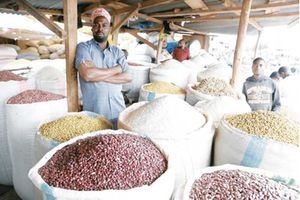More services lined up in payment system, BoT says

What you need to know:
- The new services include a standardised QR code payment system, integration of TIPS with the Government e-Payment Gateway (GePG), and a request-to-pay system, according to the BoT’s computer analyst programmer in the System Development and Support Department
Dar es Salaam. The Bank of Tanzania (BoT) is set to introduce new payment services in the Tanzania Instant Payment System (TIPS) during the current financial year, to enhance efficiency and security of payment systems in the country.
The new services include a standardised QR code payment system, integration of TIPS with the Government e-Payment Gateway (GePG), and a request-to-pay system, according to the BoT’s computer analyst programmer in the System Development and Support Department, Mr Octalion Urassa, who was speaking with The Citizen at the 48th Dar es Salaam International Trade Fair.
Under section 56(3) of the National Payment Systems Act of 2015, the BoT is mandated to establish standards to ensure the efficiency and safety of payment systems in the country.
"The standards align with international best practices to support efficient merchant payments. All financial service providers (FSPs) are required to comply with these standards and will be subject to examination and monitoring by the Bank of Tanzania," he said.
He also said that plans were underway to phase out old payment (Lipa Namba) codes and replace them with a standardised OR that can be used for payments through any service provider connected to TIPS, starting this financial year.
"We initiated this as a pilot project last year and plan to fully implement it to connect other service providers to the product," he added.
He stressed that the existing merchant QR codes will be replaced and all providers must migrate their existing QR codes to comply with the TANQR Code Standard 2022.
He highlighted that the Lipa Namba QR Code Standard 2022 has been designed to ensure efficiency in merchant payments in the country.
"TIPS will introduce new products in August, including a standardised QR payment method known as Lipa Namba. This will enable businesses to transact with any service provider connected to TIPS," he explained.
Mr Urassa emphasised that the system allows the public to make payments to any service provider without needing to be in a specific network.
In another development, Mr Urassa noted the integration of TIPS with GePG, simplifying service provider's ability to make government payments without needing revenue collection accounts.
"Previously, accounts were mandatory for receiving payments, but now you don't need to be part of the government's collection system," he said. He said the systems are already operational within TIPS, and efforts are underway to educate stakeholders on setting up their systems for customer use.
Regarding the Request to Pay system, Mr Urassa explained that it allows payers to initiate payments to utilities such as Tanesco, and Dawasco, with the payment automatically deducted when the payer accepts the request.
"We are currently educating stakeholders to facilitate their onboarding," he noted.
Prof Abel Kinyondo of the University of Dar Es Salaam said the initiative is good because it will facilitate a transition to a paperless system and eliminate cash-based transfers which are often prone to money laundering.
“Storing money in the system is crucial because it allows for traceability of its origin, prevents tax evasion, and reduces corruption since the system provides transparency,” he said.
However, he noted that if the system is not automated and therefore not affordable and efficient, there is a problem with the system that needs to be addressed.




